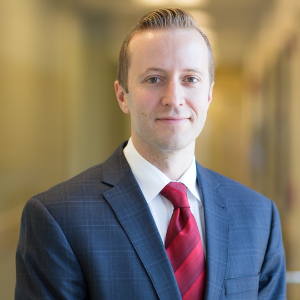Title : Treatment with rhFGF18 appears cerebroprotective in model of ischemic stroke
Abstract:
Objective:
In this study, we aimed to directly compare the safety and efficacy potential of two novel investigational treatment regimens for cerebral ischemia - rhFGF18 and rhGDF11, using a model of ischemic stroke.
Background:
Despite recent advances in prevention and treatment, stroke remains the second-leading cause of death and third-leading cause of disability worldwide. The global economic burden of this disease approaches $1 trillion annually. At the same time, therapeutic treatment options are limited to thrombolytic tissue plasminogen activator, despite its associated risk of haemorrhage and limited effect on survival. Recent studies using growth factor-derived therapeutics, including rhFGF18 and rhGDF11 have demonstrated promise in early preclinical models, however, their mechanisms remain poorly understood and a head-to-head comparison has never been performed.
Methods:
We induced cerebral ischemia in 250-300g m/f Wistar rats via a 2-hour middle cerebral artery occlusion (MCAO) (Day 1). PBS and 100ug/kg/hr rhFGF18 were administered intravenously (0.5mL/hour, for 3 hours); rhGDF11 was administered intraperitoneally (5-daily, 100ug/kg injections in 100uL PBS, starting Day 7 following MCAO). Morris water maze was used to assess motor-cognitive recovery on Days 7, 21, and 42. Tissue sections were collected on Days 21 and 42 to assess markers of neurodegeneration (Nissl stain), acetylcholinesterase (AChE) fibre density and activity, as well as metabolic parameters including succinate dehydrogenase and lactate dehydrogenase as markers of oxidative phosphorylation and glycolysis.
Results:
By Day 7, the water maze times in the PBS control group, rhFGF18, and rhGDF11 increased by 38.3%, 2.1%, and 23.1% relative to pre-MCAO baseline, with rhFGF18 achieving statistical significance over PBS. Cerebral asymmetry present in the placebo-treated animals, was not observed at the Day 21 timepoint in the rhFGF18 and rhGDF11-treated groups. Fraction of neurons with abnormal morphology decreased in all groups toward Day 42 and was lowest for rhFGF18, while gliosis improved in all test groups. AChE-positive fibre density appeared to increase over time in rhFGF18 treated animals, remained unchanged for rhGDF11, and declined in the PBS control-treated animals. Parallel changes were observed in the level of AChE enzymatic activity. Metabolic increases were greatest in rhGDF11 treated animals, as evidenced by an increase in SDH and LDH activity toward Day 42, with both rhFGF18 and rhGDF11 achieving statistically significant improvements over PBS. Finally, rhFGF18 appeared to promote a trend for reduced mortality relative to PBS, with post-MCAO mortality rates of 5.6% (95% CI [27.3%, 0.1%]) and 22.2% (95% CI [47.6%, 6.4%]) respectively.
Conclusion:
Our findings suggest that early intervention with rhFGF18 appears cerebroprotective with potential benefits in survival, recovery of motor and memory function, cerebral asymmetry, as well as neuronal viability and metabolic activity.
Audience Take Away
- The audience will learn about a new investigational treatment for ischemic stroke
- They will be able to apply the mechanistic analysis used in our research to their stroke models
- The attendees will expand their knowledge on a new class of growth-factor based treatments




